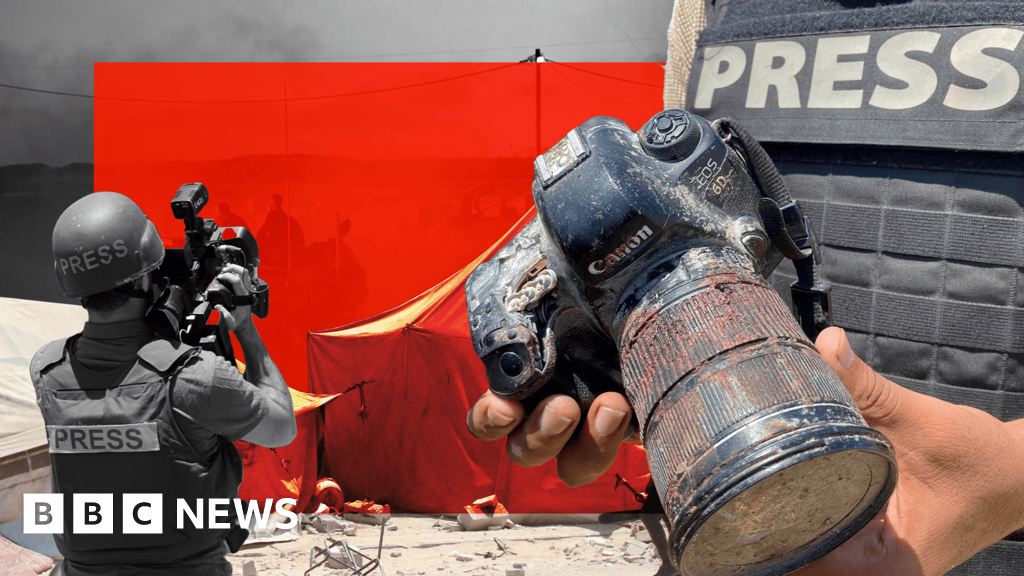I never imagined that one day I would be living and working in a tent, deprived of the most basic human necessities - even water and a bathroom. It's more like a greenhouse in the summer and a refrigerator in the winter, journalist Abdullah Miqdad told the BBC.
After 22 months of war in Gaza, most journalists find themselves working in tents around hospitals to access reliable electricity and internet. Power is cut across Gaza, and journalists rely on the generators of hospitals to charge their devices. Despite seeking safety in these locations, journalists remain vulnerable. Recent strikes have resulted in the deaths of several journalists, including five who lost their lives in a double strike on Nasser hospital.
As their circumstances deteriorate, the demand for news coverage continues unabated. Many journalists, some with no prior experience, have been pushed into reporting roles to fill this gap. However, their safety and mental well-being are compromised as they navigate overwhelming challenges, compounded by extreme hunger and the trauma of witnessing death.
Ghada Al-Kurd, a correspondent for Der Spiegel, emphasized that journalists are frequently under threat from Israeli military actions. Every journalist in the world has the right to enjoy international protection... but sadly, that protection is not extended to us, especially as Palestinian journalists, she stated.
The data reveals a devastating trend: at least 197 journalists and media workers have lost their lives in Gaza since the conflict escalated in October 2023, highlighted by significant coverage of the war, adding to the already fraught atmosphere for those who seek to report.
The personal toll of this war impacts journalists deeply. In their words, they express their feelings of fear, pain, and depletion while highlighting their commitment to providing coverage despite the risks involved. I feel suffocated, exhausted, hungry, scared - and I can't even stop to rest, reflects journalist Ahmed Jalal, encapsulating the struggles faced by those reporting from one of the world’s most dangerous places for media professionals.
After 22 months of war in Gaza, most journalists find themselves working in tents around hospitals to access reliable electricity and internet. Power is cut across Gaza, and journalists rely on the generators of hospitals to charge their devices. Despite seeking safety in these locations, journalists remain vulnerable. Recent strikes have resulted in the deaths of several journalists, including five who lost their lives in a double strike on Nasser hospital.
As their circumstances deteriorate, the demand for news coverage continues unabated. Many journalists, some with no prior experience, have been pushed into reporting roles to fill this gap. However, their safety and mental well-being are compromised as they navigate overwhelming challenges, compounded by extreme hunger and the trauma of witnessing death.
Ghada Al-Kurd, a correspondent for Der Spiegel, emphasized that journalists are frequently under threat from Israeli military actions. Every journalist in the world has the right to enjoy international protection... but sadly, that protection is not extended to us, especially as Palestinian journalists, she stated.
The data reveals a devastating trend: at least 197 journalists and media workers have lost their lives in Gaza since the conflict escalated in October 2023, highlighted by significant coverage of the war, adding to the already fraught atmosphere for those who seek to report.
The personal toll of this war impacts journalists deeply. In their words, they express their feelings of fear, pain, and depletion while highlighting their commitment to providing coverage despite the risks involved. I feel suffocated, exhausted, hungry, scared - and I can't even stop to rest, reflects journalist Ahmed Jalal, encapsulating the struggles faced by those reporting from one of the world’s most dangerous places for media professionals.


















